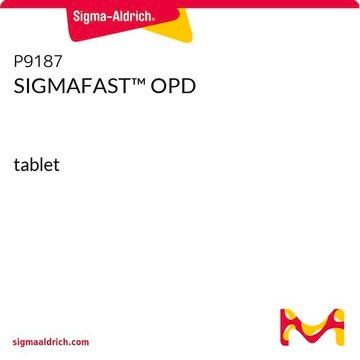C4899
Carnitine Acetyltransferase from pigeon breast muscle
ammonium sulfate suspension, ≥50 units/mg protein
Synonyme(s) :
CrAT
About This Item
Produits recommandés
Source biologique
pigeon breast
Niveau de qualité
Forme
ammonium sulfate suspension
Activité spécifique
≥50 units/mg protein
Concentration
≥0.4 mg/mL
Technique(s)
cell based assay: suitable
Numéro d'accès Protein ID
Numéro d'accès UniProt
Température de stockage
2-8°C
Informations sur le gène
pigeon ... CRAT(102084317)
Vous recherchez des produits similaires ? Visite Guide de comparaison des produits
Description générale
Application
Actions biochimiques/physiologiques
Définition de l'unité
Forme physique
Remarque sur l'analyse
Inhibiteur
Code de la classe de stockage
12 - Non Combustible Liquids
Classe de danger pour l'eau (WGK)
WGK 2
Point d'éclair (°F)
Not applicable
Point d'éclair (°C)
Not applicable
Certificats d'analyse (COA)
Recherchez un Certificats d'analyse (COA) en saisissant le numéro de lot du produit. Les numéros de lot figurent sur l'étiquette du produit après les mots "Lot" ou "Batch".
Déjà en possession de ce produit ?
Retrouvez la documentation relative aux produits que vous avez récemment achetés dans la Bibliothèque de documents.
Les clients ont également consulté
Notre équipe de scientifiques dispose d'une expérience dans tous les secteurs de la recherche, notamment en sciences de la vie, science des matériaux, synthèse chimique, chromatographie, analyse et dans de nombreux autres domaines..
Contacter notre Service technique














